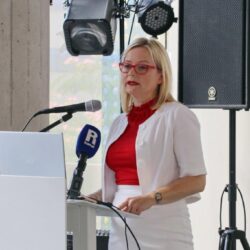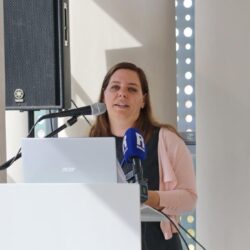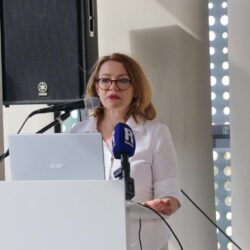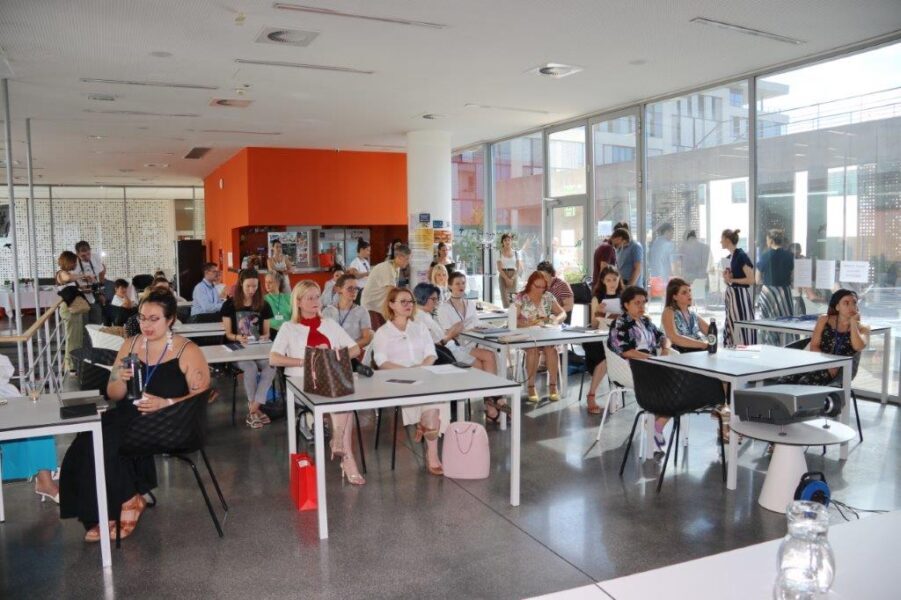
A three-day international symposium “Sexual and gender-based violence and its prevention in education: exchange of knowledge and existing practice” kicks off on the University Campus.
The main goals of the symposium, which will be held in Rijeka from 6 to 8 July and which brings together international and domestic experts in the field of gender and sexual equality, is the realisation of international cooperation and exchange of knowledge related to the prevention of sexual and gender-based violence in the educational environment. Also, one of the goals is the establishment of international cooperation in conceiving, testing and evaluating pedagogical approaches, policies, teacher preparation and materials that strengthen approaches to the prevention of sexual and gender-based violence, in order to make education safe for all participants.
Sexual and gender-based violence in the educational environment is an important problem that institutions, teachers, parents and policy makers around the world encounter. UNESCO, the European Union and the World Health Organisation define this issue as global and urgent, calling on educators and policy makers to come together and work on solutions that protect and empower school children, teenagers and students locally and internationally.
- Sandra Krpan
- Nana Gulić
- Senka Maćešić
On the occasion of the opening of the symposium, the attendees were welcomed by Nana Gulić, as the representative of the organiser on behalf of the Ontario Institute for Studies in Education, the deputy mayor of the City of Rijeka, Sandra Krpan, and the vice-rector for digitization and development of the University of Rijeka, Senka Maćešić.
“Unfortunately, sexual and gender-based violence is present in our society, but it is important to react preventively, not only when it has already happened,” pointed out deputy mayor Krpan and added that adequate education and training played a big role in solving this problem. “I think that we, in the City of Rijeka, compared to the rest of the country, have taken a big step in this direction by introducing the Civic Education Programme in our elementary schools, and we continue in the same direction, as we announced, we intend to introduce health education in our schools . Civic education has contributed to our children becoming more tolerant, open, and ready to accept others and diverse people. By introducing health education, we want to influence children and young people to get adequate knowledge about reproductive and mental health, as well as all the knowledge they need in order to grow into normal and self-aware citizens”, said Krpan and added that those questions should be constantly talked about. “It’s not that it’s just an opportunity when, for example, the March for Freedom takes place or when we march for women’s rights to emphasise that in the 21st century a woman has the right to choose,” concluded Krpan.
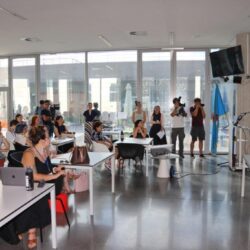
Sexual and gender-based violence and its prevention in education
The programmes implemented by the City of Rijeka, such as civic education, the announced introduction of health education, as well as free hygiene supplies for girls in elementary schools, were highlighted by Nana Gulić as examples of good practice. She also added that the University of Rijeka was a leader in the implementation of the gender equality programme in Croatia. “The goal of this symposium is mutual connection and exchange of good practices, to see what we can do and learn from each other by thinking together and in what concrete ways we can influence the resolution of this issue both at local and global levels,” concluded Gulić.
Vice-rector Maćešić emphasised the participation of the University of Rijeka in numerous international projects dealing with the topics of women’s equality and prevention of violence against women. “The University of Rijeka has a number of institutional mechanisms that ensure that victims of inappropriate behaviour come forward with their problem and receive the institution’s protection, and that those who behave inappropriately, especially when they do it from a position of power, bear appropriate consequences,” said Maćešić.
Experts and educators from the Ontario Institute for Studies in Education at the University of Toronto in Ontario take part in the symposium, as well as teachers, educators, researchers, university and school administrators and students from universities in Croatia, Slovenia, Serbia and Kosovo.
During the first two days of the symposium, panel discussions will be held, and during the last day, a task-force meeting of the participants will be held, where further cooperation will be discussed.
During the first panel, the speakers were experts from the University of Toronto.


